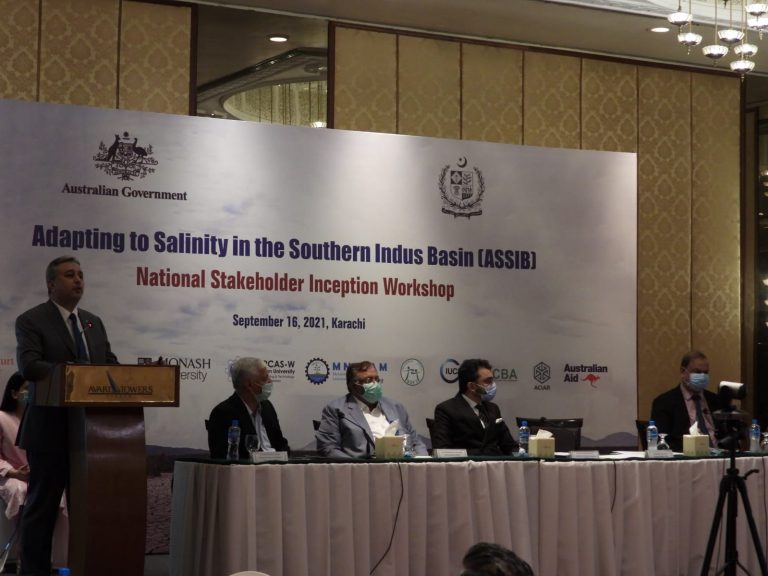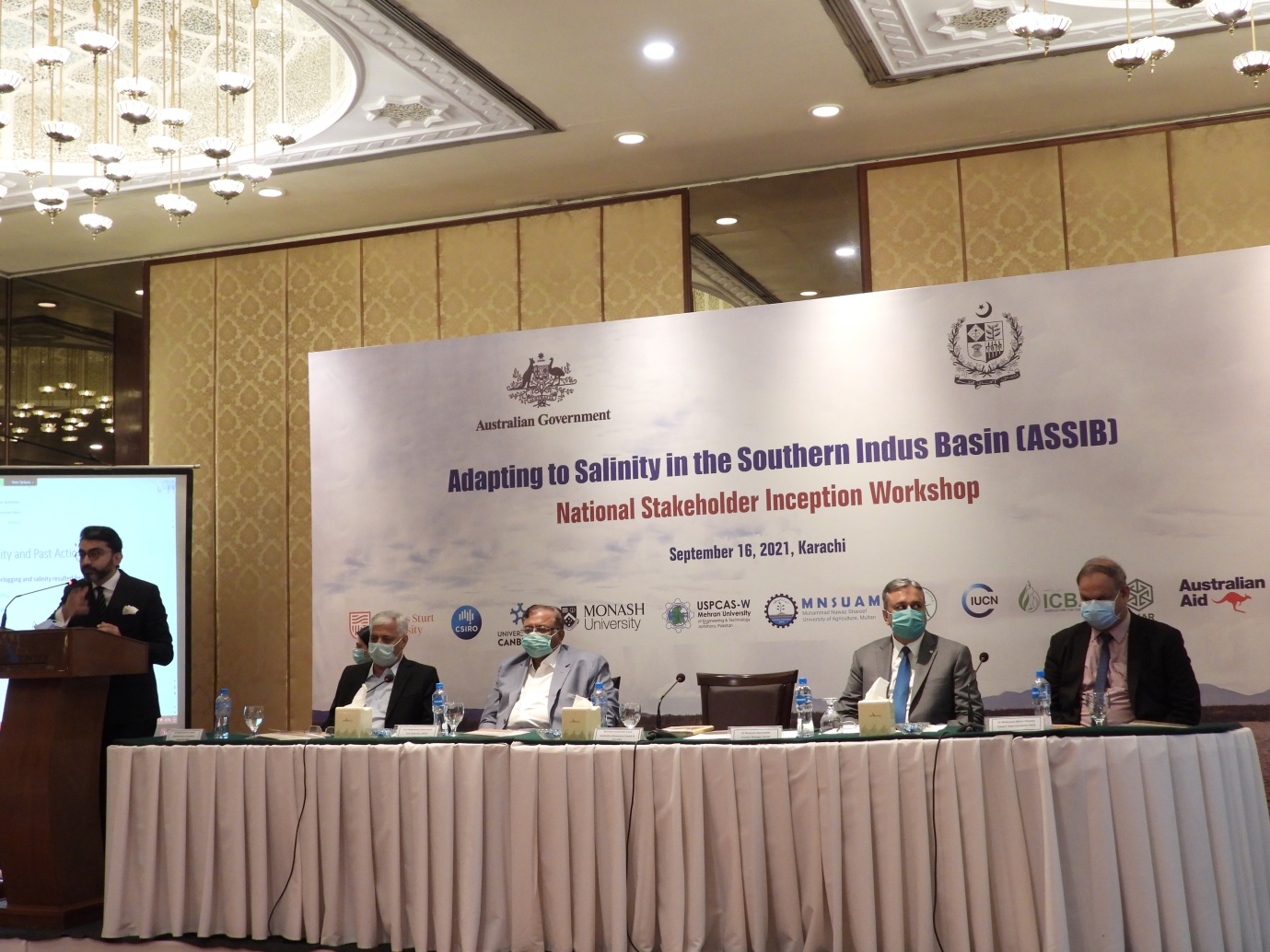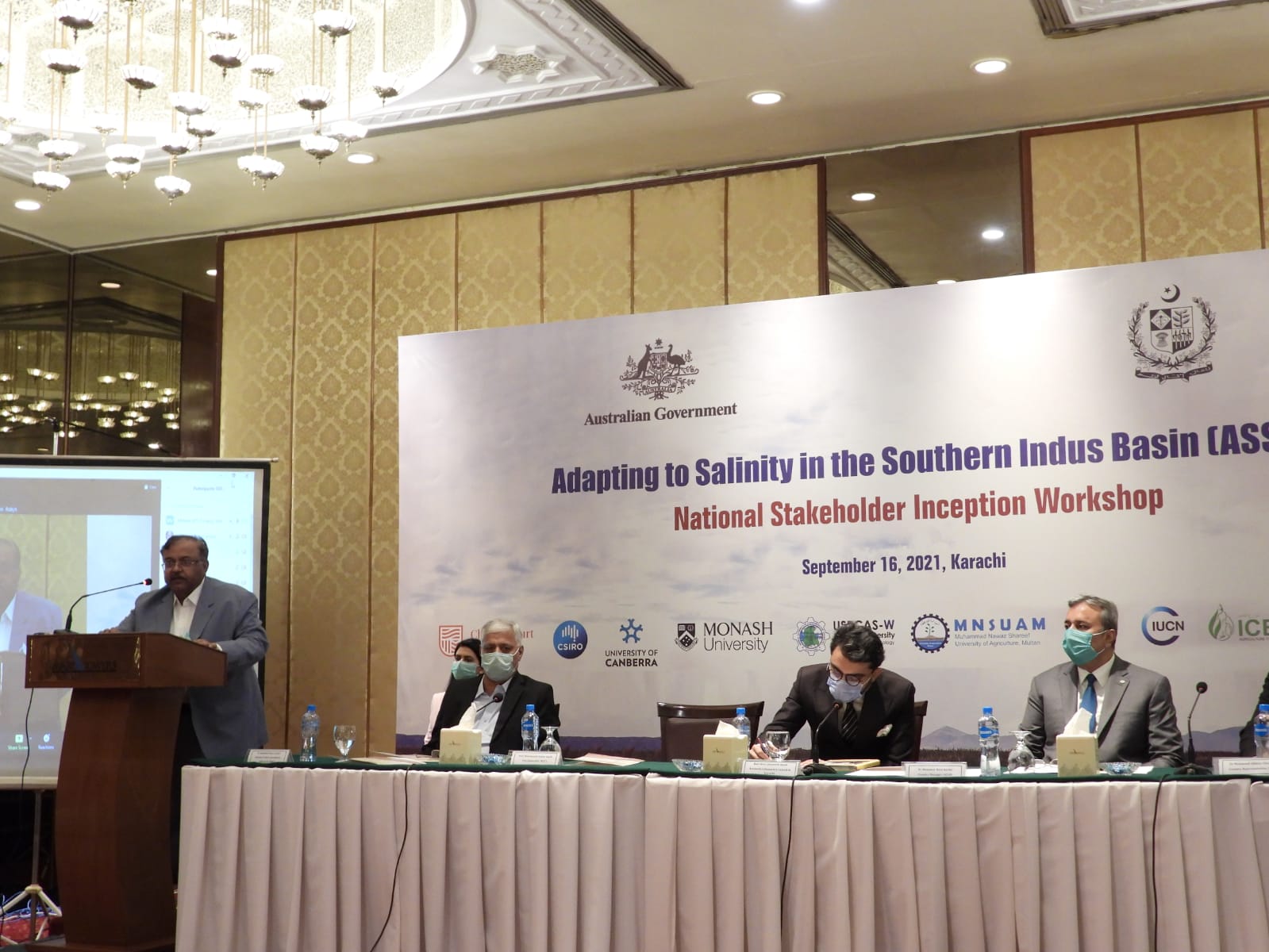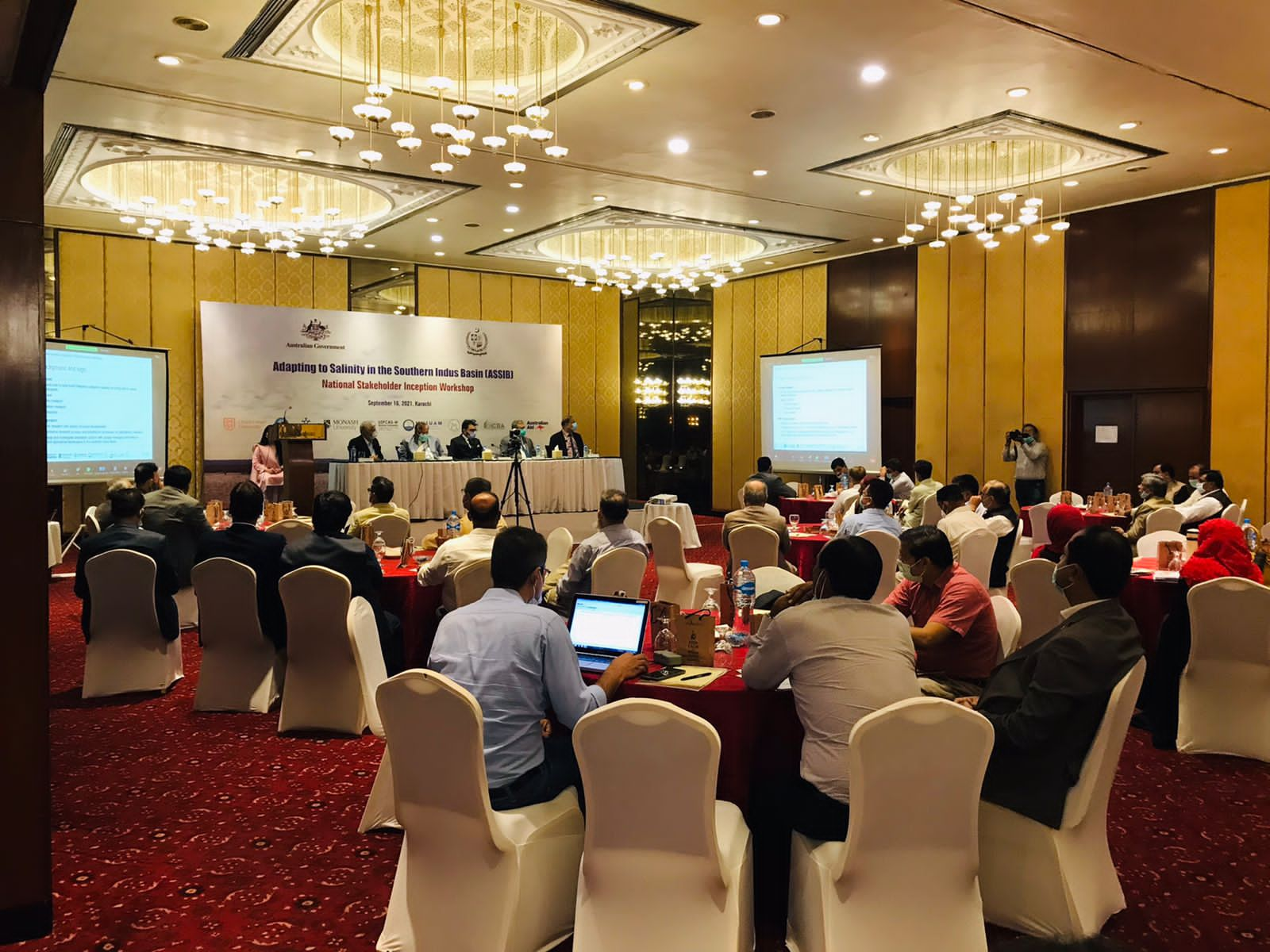
Funded by Australian govt., the 2.5-year project is a launching pad for a 10-year program to explore how Pakistan can live better with the salt that is entrenched in its landscape.
Karachi: ‘Adapting to Salinity in the Southern Indus Basin’ (ASSIB’) project, funded by the Australian government through the Australian Center for International Agricultural Research (ACIAR), was launched here recently.
The ASSIB project aims to develop and investigate adaptation options and strategies with people managing and living in salinity affected agricultural landscapes in the Indus Basin areas of south Punjab and Sindh.
“This 2.5-year project is a launching pad for a 10-year program to explore how Pakistan can live better with the salt that is entrenched in its landscape,” explained Dr. Michael Mitchell, Project Leader and Research Fellow at the Institute for Land, Water and Society, Charles Sturt University, Australia.
 Dr. Mitchell gave an overview of the ASSIB project, explaining the background and the rationale behind the 2.5 year project as a launching pad for a 10 year program of activities. He highlighted how this is intended to evolve through different stages – formative, participatory and action research. “This workshop is an important step to help us greatly extend our already established linkages with stakeholders and network of experts,” he added.
Dr. Mitchell gave an overview of the ASSIB project, explaining the background and the rationale behind the 2.5 year project as a launching pad for a 10 year program of activities. He highlighted how this is intended to evolve through different stages – formative, participatory and action research. “This workshop is an important step to help us greatly extend our already established linkages with stakeholders and network of experts,” he added.
Dr. Bakhshal Lashari, National Project Coordinator, ASSIB, at Mehran University of Engineering and Technology (MUET), expressed hope that the project would prove to be a landmark in improving the livelihoods of salt affected farming community of Pakistan.
Speaking on the occasion, Chief Guest Mr. Jahanzeb Awan, Australia’s Honorary Consul in Karachi, said that ACIAR sought to address three major challenges in Pakistan, mainly sustainable water supply, energy and food security. “The project in particular builds upon not only the common values between the two countries (Australia and Pakistan) but also focuses on the common challenges that both the countries face. I appreciate the efforts of Dr. Michael and Dr. Bakhshal for leading this project and hope this project will bring about the change that will meaningfully impact future generations”.
 Prof Dr. Muhammad Aslam Uqaili, Vice Chancellor MUET, thanked the Australian government and ACIAR for this opportunity. He highlighted the role of MUET in taking initiatives in terms of internationally funded projects and the capacity of the US-Pakistan Center for Advanced Studies in Water in leading high quality indigenous research. He also appreciated the key approach taken in trying to minimize and live well with salinity “given that not only is salinity increasing, but so is the population, creating pressure on the limited natural resources.” He underscored the need for a focus on gender inclusion in all initiatives being planned under the project.
Prof Dr. Muhammad Aslam Uqaili, Vice Chancellor MUET, thanked the Australian government and ACIAR for this opportunity. He highlighted the role of MUET in taking initiatives in terms of internationally funded projects and the capacity of the US-Pakistan Center for Advanced Studies in Water in leading high quality indigenous research. He also appreciated the key approach taken in trying to minimize and live well with salinity “given that not only is salinity increasing, but so is the population, creating pressure on the limited natural resources.” He underscored the need for a focus on gender inclusion in all initiatives being planned under the project.
Dr. Munawar Raza Kazmi, ACIAR’s Country Manager, presented the significant work of ACIAR and how its work focuses on the rural poor community, and especially women living in Punjab and Sindh through improvements in Strategic Value Chain. “The target areas include Livestock, Horticulture, Crops, Water and Land Management, especially policy making. We have been researching best practice irrigation policy with the help and support of Sindh Irrigation Development Authority (SIDA) and Sindh Irrigation Department (SID). Groundwater mapping in Sindh has been done with the help of MUET. In this, MUET not only helped Sindh but also extended its expertise to Punjab and Balochistan as well.
IUCN Country Representative, Mahmood Akhtar Cheema said in his welcome remarks that given the lack of freshwater and sea intrusion in the Indus River, millions of hectares of agricultural land has been rendered infertile, and communities have been forced to move to other places in search of livelihood opportunities. “This project “Living well with Salinity” is the need of the time and that is the reason this project is close to our hearts,” he added. He explained the role of IUCN and the partnerships IUCN has had with a number of institutions to help address such environmental issues.
Closing remarks were given by a farmer community expert Mahmood Nawaz Shah, Senior Vice President, Sindh Abadgar Board, who acknowledged the many benefits that have flowed from ACIAR’s research interventions for Pakistan’s farmers.
 In her vote of thanks, Dr. Robyn Johnston, ACIAR Research Program Manager for Water, appreciated the contributions made by speakers and participants at the workshop. “As we have heard, water logging and salinity are common challenges for both Pakistan and Australia and the areas where much is to be gained through the joint research. We are seeking innovative partnerships to find solutions to these very intractable problems. This project aims to act as a catalyst to bring together, work together to come with unified action plans as suggested,” she concluded.
In her vote of thanks, Dr. Robyn Johnston, ACIAR Research Program Manager for Water, appreciated the contributions made by speakers and participants at the workshop. “As we have heard, water logging and salinity are common challenges for both Pakistan and Australia and the areas where much is to be gained through the joint research. We are seeking innovative partnerships to find solutions to these very intractable problems. This project aims to act as a catalyst to bring together, work together to come with unified action plans as suggested,” she concluded.
The stakeholder inception workshop was attended by representatives from government, academia, NGOs, and communities living in salinity-affected areas of Pakistan. (PR)
_______________________